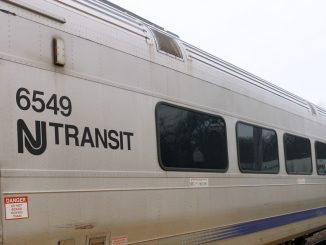
Operation Lifesaver and the Federal Highway Administration (FHWA) last month announced $200,000 in grants to Operation Lifesaver programs in 14 states.
The grants will fund a variety of highway-rail grade crossing safety public education projects, many of which will be conducted in conjunction with the nonprofit safety group’s observance of Rail Safety Week, Sept. 21-27, 2020.
Funded by FHWA, the grants will be awarded to Operation Lifesaver organizations in Arizona, California, Indiana, Louisiana, Minnesota, Missouri, Mississippi, North Carolina, New Jersey, New York, Ohio, Pennsylvania, South Carolina and Washington. These state programs will use the funding to launch public awareness campaigns and host community events that deliver critical safety tips to target audiences, including motorists of all ages and professional drivers.
“OLI is grateful to our safety partners at FHWA for making these grant-funded activities and events possible,” OLI Executive Director Rachel Maleh said in a news release. “The outreach projects will raise awareness of the need for caution near highway-rail grade crossings. Our goal is to inform drivers, reduce preventable crossing collisions and stop track tragedies.”
The approved grants were awarded through a competitive process, with selection based on criteria such as the defined safety need, the number of highway-rail collisions in the state, and how the proposal leverages federal funds with private partnerships.
“Safety on American roads – including those that cross railroad tracks – is our top priority,” Federal Highway Administrator Nicole R. Nason said in a news release. “We are proud to partner with Operation Lifesaver in a data-driven effort to keep rail-grade crossings safe for the traveling public.”




